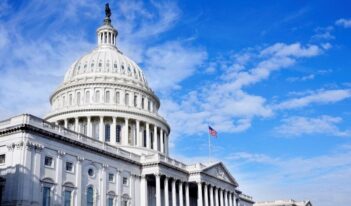
Regulatory news in review
- The Department of Homeland Security (DHS), Department of Justice (DOJ), and Federal Trade Commission (FTC) will work with state and local governments to fight fraudulent immigration services.
- David Skeel, the S. Samuel Arsht Professor of Corporate Law at the University of Pennsylvania, argued in the Wall Street Journal that the auto industry government bailouts will have negative repercussions for years to come.
- The Senate Committee on Commerce, Science, and Transportation approved the Public Safety Spectrum and Wireless Innovation Act, a bill that will encourage the auctioning of commercial airwaves to mobile broadband providers. This bill responds to a 9/11 Commission recommendation to strengthen wireless first responder networks.
- Maine earned praise from the Department of Transportation (DOT) for passing a law banning texting while driving. In doing so, Maine joined 33 other U.S. states, the District of Columbia, and Guam.
- A Government Accountability Office (GAO) report to the House Committee on Veterans Affairs revealed approximately 300 cases of sexual assault at VA residential programs between 2007 and 2010.
- The DOT Pipeline and Hazardous Materials Safety Administration (PHMSA) allowed a restarting of operations at a TransCanada Corporation pipeline that is a major conduit for crude oil entering the United States. PHMSA had issued an order shutting down its operation after a series of pipeline leaks occurred last May.
- Since President Obama signed legislation last year promoting “teleworking,” or working remotely, about a third of federal workers now telework, an increase over the past six months, according to a report by Telework Exchange.
- In an effort to combat false information circulating on social networking sites, websites, and message boards about stocks for which little public information is available, the Securities and Exchange Commission (SEC) suspended trading in seventeen microcap stocks. Microcap stocks are very low-value stocks issued by very small companies.
- The Environmental Protection Agency (EPA), as part of an ongoing effort to increase transparency, released the names of chemicals that were previously kept secret in health and safety studies.
- To better protect consumers, the EPA announced it will ban the sale to non-commercial customers of some popular rat and mouse poisons.



